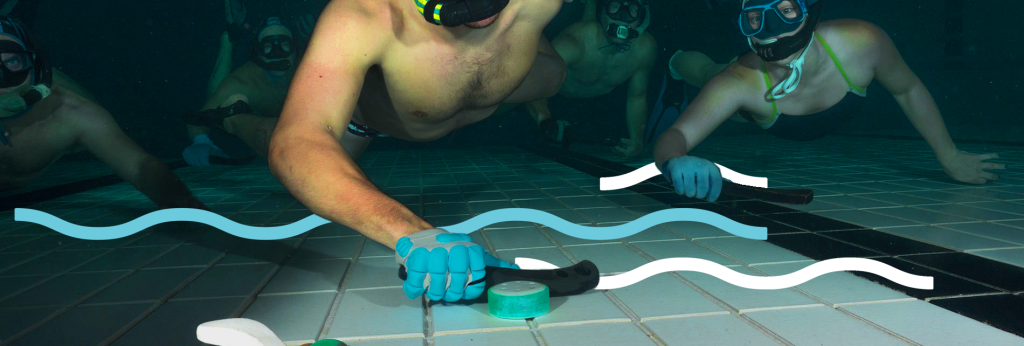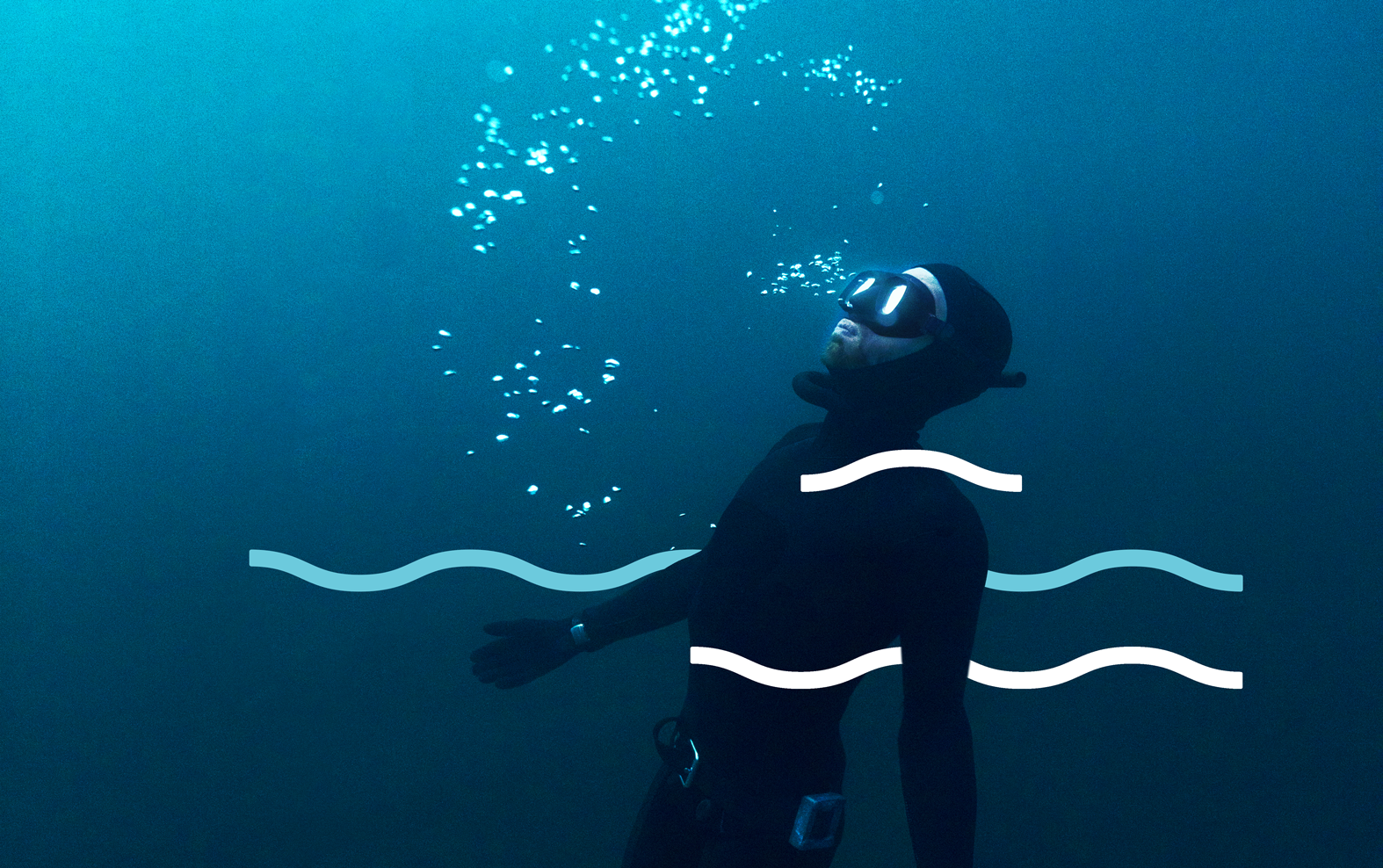
Tu veux jouer au hockey subaquatique ?
A sport to discover
Although it is a practice little known to the general public, underwater hockey players are present in several clubs in Quebec. It is also practiced elsewhere in Canada as well as in more than 30 countries.
To enjoy this sport, you must participate
The best way to enjoy an underwater hockey game is to have your head in the water. This is where we appreciate all the dynamics of this sport where all the action takes place below the surface. To discover this sport, you must participate in it or have access to it through video. So, isn't it better to try the experience by literally diving into it?
Where does underwater hockey come from?
Invented in England in 1954 by Alan Blake, underwater hockey was born out of the need for diving enthusiasts to keep in shape during the winter. Long before the appearance of its first official regulations in the mid-1960s, friendly matches between clubs were held. At the very beginning, the very rudimentary game consisted simply of pushing a brass washer with a small wooden fork. It is twenty years later that the equipment is refined and improved. In Quebec, it was Rodrigue Sarrazin who brought underwater hockey to the province some thirty years ago, following a diving trip to the United States.
How do we play?
Players evolve in a horizontal position, parallel to the bottom of the pool at a depth that often varies around 2m to 3m. Players are equipped with fins, mask, snorkel, glove and a 30 centimeter stick. The equipment is very different from that of ice hockey! Moreover, the puck, which always evolves at the bottom of the pool, weighs 1.5 kg.
The game is played six against six and the objective is to send the puck into the opposing team's goal, which is 3m wide. Players pass each other and take advantage of the moments when the puck is in possession of another player to catch their breath. In regular time, a game lasts 33 minutes, i.e. two fifteen-minute periods separated by a three-minute half-time during which the teams change sides.
Who can plan underwater hockey ?
Underwater hockey is accessible to everyone and can be practiced from childhood to old age. It helps to develop good cardiovascular capacities. Contrary to what one might imagine, it is not necessary to stay at the bottom of the water for a long time to be a good hockey player!
The clubs
La meilleure manière pour jouer : contactez les clubs proche de chez vous !

Informations générales :
Contact : hockeysub@quebecsubaquatique.ca
Téléphone : 418 956-5392
- Veuillez contacter les organisateurs pour plus d’information sur les heures des pratiques et groupes d’initiations
- Maillot de bain requis
- Aucune réservation requise
- Matériel disponible gratuitement sur place (palmes, masque, tuba, etc.)
- Il est recommandé de contacter les organisateurs pour avoir plus d’information et confirmer les dates des pratiques
Gatineau
Contact : 613 808-5354
Lieu : Centre sportif de Gatineau: 850 Boulevard de la Gappe, Gatineau
Pratiques : Mardi-Jeudi-Vendredi
Facebook : /GOUnderwaterHockey
Facebook public site : /92940400802
Website : www.uwh.ca
Montréal
Contact : 514 972-3829
Lieu : Piscine Joseph-Charbonneau: 8200 Rue Rousselot, Montréal
Pratiques : Mardi-Jeudi
Facebook : /CAMOhockeysousmarin
Email : camo_underwater@hotmail.com
Québec
Contact : 418 956 5392
Lieu : PEPS de l’Université Laval: 2300 De la Terrasse St, Québec
Pratiques : Mardi-Jeudi
Facebook : /clubHSQ
Website : www.clubhsq.ca
Rimouski
Contact : 581 624-6672
Lieux :
- Complexe Desjardins: 150 2e Rue E, Rimouski,
- Piscine Pierre-Harvey: 250 Boulevard Arthur-Buies, Rimouski
Pratiques: Jeudi-Dimanche
Facebook private site : /161634483951091
Sherbrooke
Contact : 514 816-7277
Lieu : Centre sportif Yvon-Lamarche: 2500 Bd de l’Université, Sherbrooke
Pratiques : Mardi
Facebook : /hsmSherbrooke
UdeS Registration : /club-de-hockey-subaquatique
Fermont
Contact : (418) 287-5471
Lieu : Piscine municipale de Fermont
Pratiques : Veuillez contacter les organisateurs pour plus d’informations sur les heures et groupes d’initiations
See Fermont city website : www.villedefermont.qc.ca/sports-et-loisirs
Gaspé
Contact : 418 956-5392
Lieu: Pavillon des Sports Marcel-Bujold 96 Rue Jacques Cartier, Gaspé, QC G4X 2S8
Pratique: Mercredi
Website : https://cegepgim.ca/centre-sportif/centre-sportif-campus-de-gaspe/

